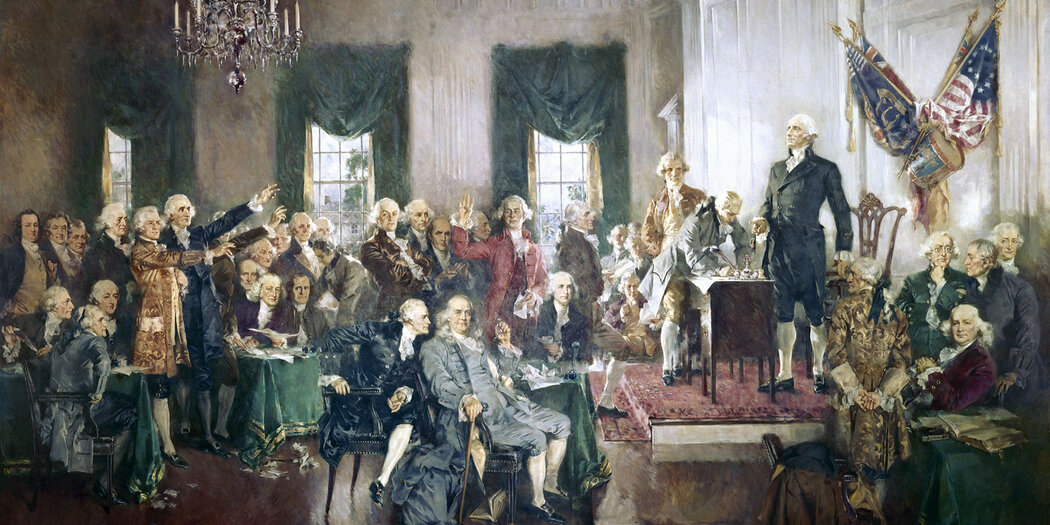PoliticalChic
Diamond Member
- Thread starter
- #21
10. In October, the Court will hear Moore vs Harper, questioning whether any agency, agent, or body other that the state legislature can alter the “time, place, and manner” of national elections….
….as the text of the US Constitution states….
“On June 30, the U.S. Supreme Court delivered its ruling on West Virginia v. Environmental Protection Agency (EPA), limiting the EPA’s authority under a provision of the Clean Air Act to regulate greenhouse gas emissions from the power sector.
In a 6-3 majority led by Chief Justice John Roberts, the court denied the EPA the authority to create emissions caps, stating that Congress must provide specific direction to the EPA—instead of a broad scope of power— for the agency to regulate greenhouse gas emissions. Justice Elena Kagan dissented, joined by Justices Stephen Breyer and Sonia Sotomayor, arguing that the text of the Clean Air Act is written with broad language to anticipate dealing with new problems like climate change and that the majority’s decision contradicts nearly a century of regulatory law.”
What the SCOTUS ruling on EPA and emissions means for climate change
The EPA decision should be viewed against the long-standing policy of Congress creating agencies and allowing them to have the powers that the Constitution gives only to Congress.
Is there some point where it is considered to be an unconstitutional delegation of legislative authority to an agency or bureau. Under Obamacare, or Dodd-Frank Reform we see legislation where regulators have not yet determined what the regulation should be…how can Congress allow a law without knowing what the impact will be?
Yet, from the earliest of Progressive administrations, we find the belief that government bureaucrats, and technocrats, and agencies know better than those involved in the myriad voluntary transactions as to how much each should have, and have been allowed to make policy changes they are not authorized to do.
The 2020 election was rife with examples.
If we get the correct decision, be sure to carry open umbrellas, to avoid all the Democrats jumping off high buildings.
….as the text of the US Constitution states….
“On June 30, the U.S. Supreme Court delivered its ruling on West Virginia v. Environmental Protection Agency (EPA), limiting the EPA’s authority under a provision of the Clean Air Act to regulate greenhouse gas emissions from the power sector.
In a 6-3 majority led by Chief Justice John Roberts, the court denied the EPA the authority to create emissions caps, stating that Congress must provide specific direction to the EPA—instead of a broad scope of power— for the agency to regulate greenhouse gas emissions. Justice Elena Kagan dissented, joined by Justices Stephen Breyer and Sonia Sotomayor, arguing that the text of the Clean Air Act is written with broad language to anticipate dealing with new problems like climate change and that the majority’s decision contradicts nearly a century of regulatory law.”
What the SCOTUS ruling on EPA and emissions means for climate change
The EPA decision should be viewed against the long-standing policy of Congress creating agencies and allowing them to have the powers that the Constitution gives only to Congress.
Is there some point where it is considered to be an unconstitutional delegation of legislative authority to an agency or bureau. Under Obamacare, or Dodd-Frank Reform we see legislation where regulators have not yet determined what the regulation should be…how can Congress allow a law without knowing what the impact will be?
Yet, from the earliest of Progressive administrations, we find the belief that government bureaucrats, and technocrats, and agencies know better than those involved in the myriad voluntary transactions as to how much each should have, and have been allowed to make policy changes they are not authorized to do.
The 2020 election was rife with examples.
If we get the correct decision, be sure to carry open umbrellas, to avoid all the Democrats jumping off high buildings.
Last edited:
